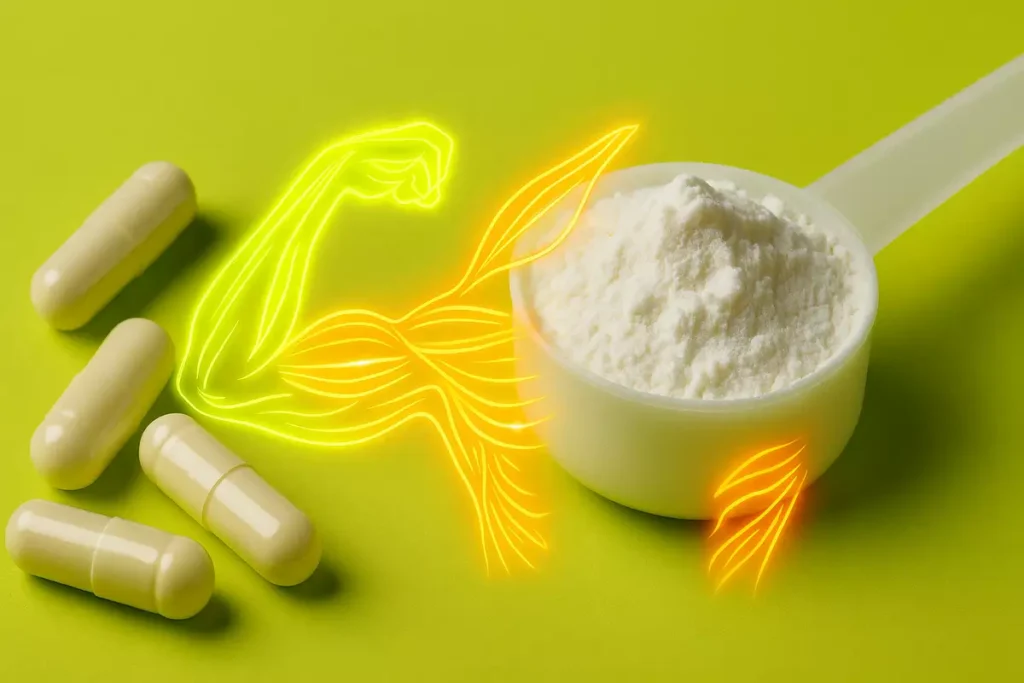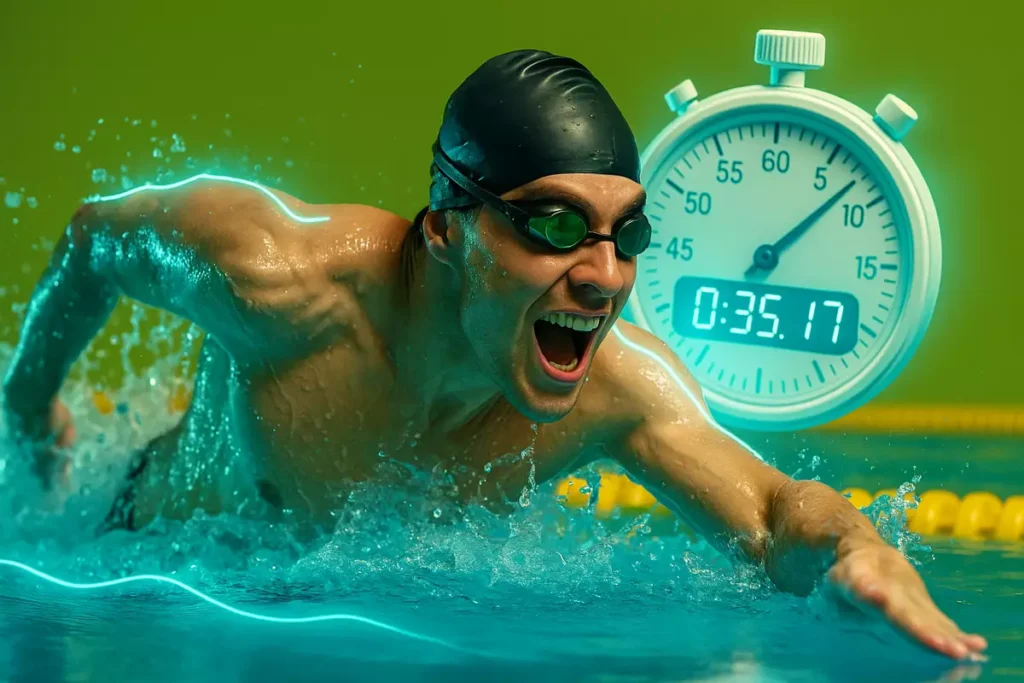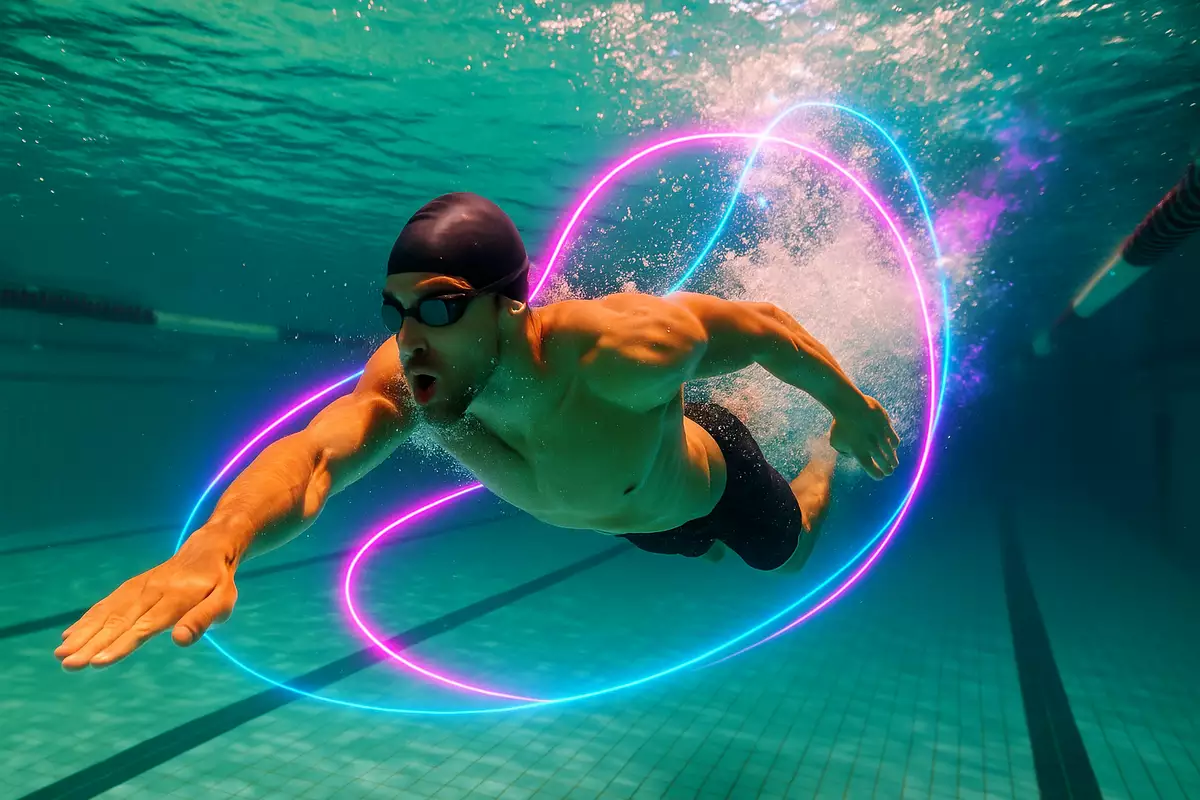Swimming is a sport where every second matters. The difference between winning and falling behind often comes down to endurance and power.
That’s why more swimmers are turning to beta-alanine—a proven supplement that helps fight muscle fatigue and extend sprint performance.
As a fitness trainer, I’ve seen how beta-alanine transforms swimmers’ training and racing. Let’s dive into how it works and why it could be your edge in the pool.
Table of contents
Quick Answer
If you’re a swimmer looking for an edge in the pool, beta-alanine might be the supplement you’re missing.
In my own experience as a trainer, it helps buffer lactic acid, delay fatigue, and keep muscles firing longer. For swimmers, that means holding your sprint speed longer and powering through those tough final meters.
What Is Beta-Alanine and How It Works

Beta-alanine is a non-essential amino acid. When you take it consistently, your body produces more carnosine inside your muscles.
Carnosine acts like a shield against lactic acid, the stuff that makes your arms and legs burn when you push hard in the water. This buffering effect is especially useful in swimming, where short, explosive efforts dominate training and racing.
If you want a deeper comparison, check out how beta-alanine stacks up against citrulline malate for performance.
Benefits of Beta-Alanine for Swimmers
The main benefits I’ve seen for swimmers are:
- Faster sprints – holding speed in 50m and 100m events.
- Better endurance – lasting longer in 200m and 400m without that heavy burn.
- Less fatigue – more power left for repeated training sets.
One of my swimmers, Emily from Canada, noticed she could push harder in her 100m freestyle after just a few weeks on beta-alanine.
She told me the last 25 meters felt less like “survival” and more like controlled speed. Her results echo what I’ve seen with muscle endurance benefits in other athletes.
Scientific Evidence in Swimming Performance

Research consistently shows that beta-alanine improves performance in sports with high-intensity bursts lasting 1–4 minutes.
That’s the sweet spot for many swim races. Studies on cyclists and sprinters confirm this too, which is why cyclists and sprinters also benefit from the supplement.
In practice, I’ve seen the same pattern in swimmers: better control over pace, stronger finishes, and the ability to train at higher intensities without crashing early.
Best Dosage and Timing for Swimmers
Based on science and real-world coaching:
- Dosage: 3–6 grams daily
- Timing: Not critical, but consistency is key
- Duration: 4–6 weeks to fully build up carnosine stores
I recommend splitting the dose to reduce the tingling side effect.
Personally, I combine beta-alanine with creatine and protein during heavy training blocks. Sofia from Italy followed this approach and said it made double swim sessions much more manageable without burning out.
Weightlifters use a very similar approach. You can see parallels in beta-alanine for weightlifters where endurance and recovery play a huge role.
Possible Side Effects and Safety

The main side effect is tingling in the skin, called paresthesia. I felt it myself—mostly on my face and arms. It can be annoying, but it’s harmless.
For Kenji from Japan, one of my athletes, it was distracting at first. We fixed it by splitting his daily dose into smaller servings. After that, he hardly noticed it.
If tingling bothers you, here are tips to stop beta-alanine tingles that actually work.
As long as you stay in the recommended range, beta-alanine is safe for healthy athletes. It also holds up well when taken consistently, and research supports its long-term safety.
Trainer’s Final Recommendation
From my experience, beta-alanine is most valuable for competitive and advanced swimmers.
If you’re just starting out, focus on your stroke technique, conditioning, and nutrition first. But if you’re chasing personal bests or competing at a high level, beta-alanine can give you an extra edge.
David, a 19-year-old from the UK, improved his 200m freestyle training time by nearly two seconds after six weeks of supplementation. The difference was clear in his final 50 meters—he still had power when others were slowing down.
My advice: Be patient and consistent. Beta-alanine isn’t a quick fix—it builds results over weeks. Stick with it, manage the tingling by splitting doses, and combine it with smart training.
For swimmers competing in races between 50m and 400m, it can be the game-changer you’ve been looking for.



Leave a Reply